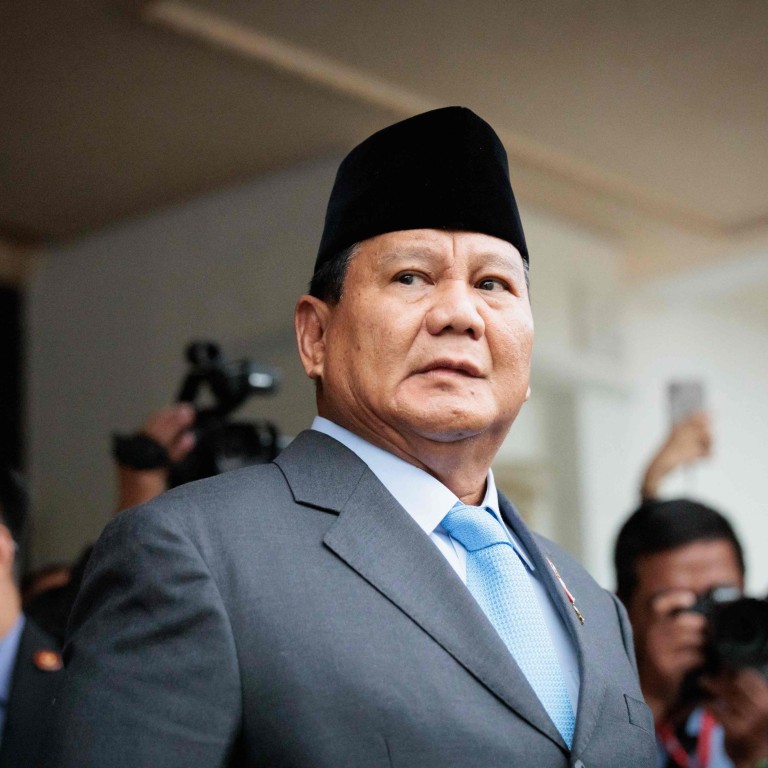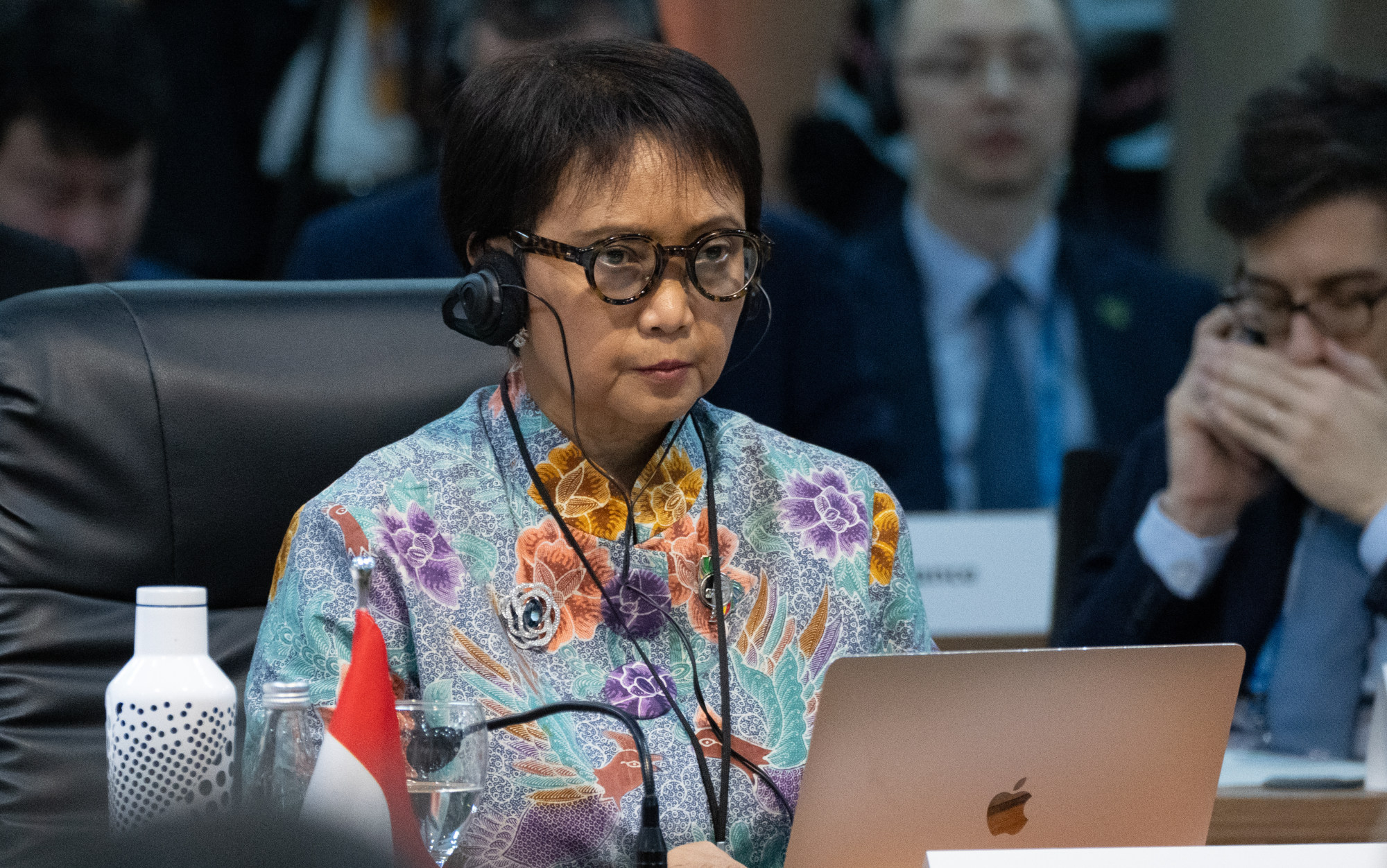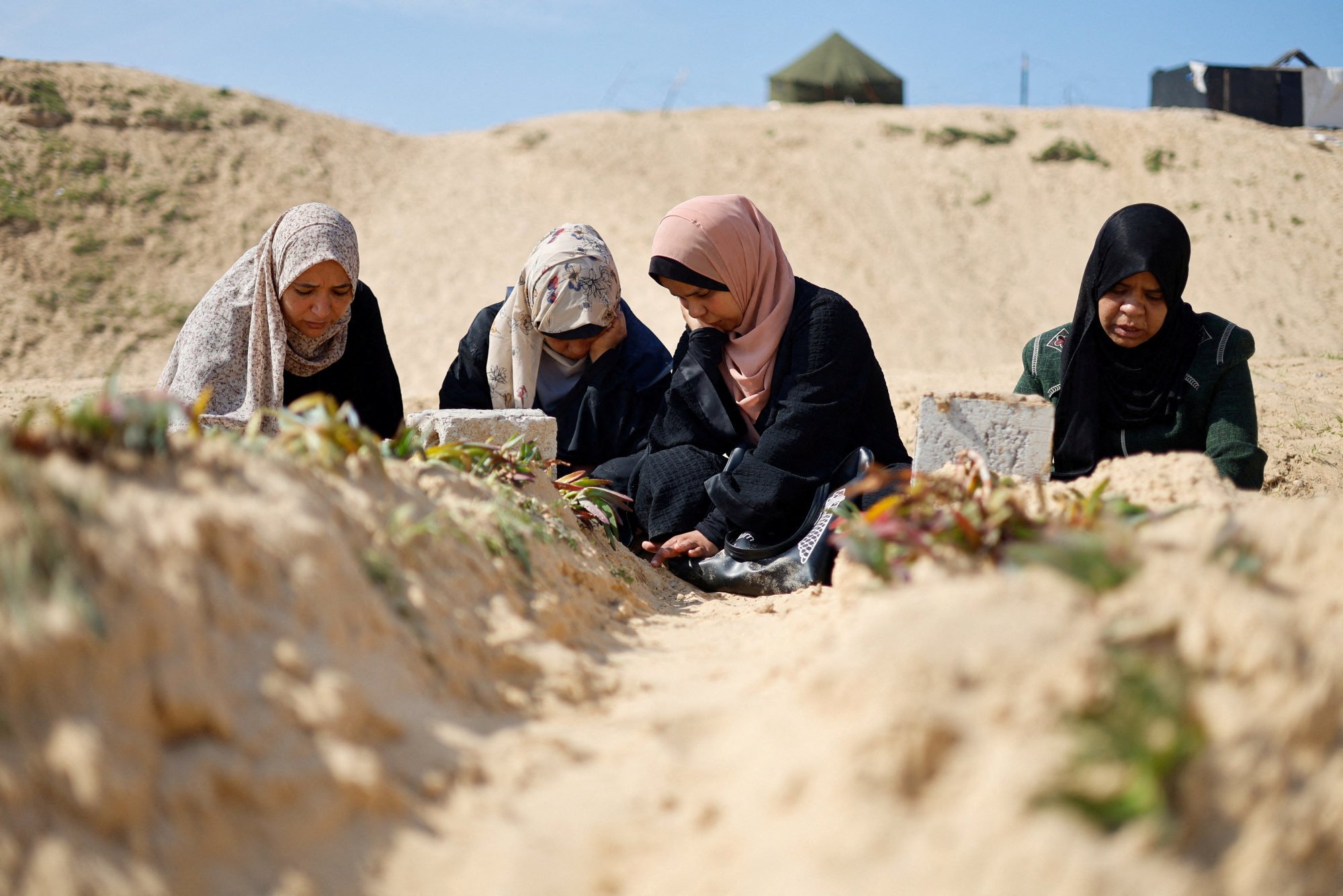
Prabowo set to keep Indonesia’s strong pro-Palestinian stance amid ICJ case on Israeli occupation
- Indonesia recently called on the ICJ to deliver an advisory opinion to stop Israel’s ‘unlawful occupation’ in the Gaza Strip
- President-elect Prabowo Subianto is expected to maintain Indonesia’s decades-long support for the Palestinians and the two-state solution, analysts say
Indonesia’s recent call to the International Court of Justice (ICJ) to deliver an advisory opinion to stop Israel’s “unlawful occupation” in the Gaza Strip is consistent with its decades-long support for the Palestinians that president-elect Prabowo Subianto is expected to maintain, analysts say.
Such a position also aligns with the strong pro-Palestinian views of Indonesians across religious faiths in the Muslim-majority country, some of whom have actively participated in a boycott of international companies accused of financing Israel.
Foreign Minister Retno Marsudi conveyed Indonesia’s stance at The Hague on Friday as one of the 52 nations asked by the ICJ to participate in historic hearings on the legality of Israel’s 57-year-long occupation of the Palestinian territories.

“Prime Minister Benjamin Netanyahu even said, and I quote, ‘nobody will stop us – not The Hague … not anybody else’,” she said on Friday.
“No state should be granted free rein to do anything they want against a weaker state. This is why we have international law,” Retno added. “There is a big hope from the international community … that ICJ delivers a favourable advisory opinion to the interest of justice and humanity.”
In December 2022, the United Nations General Assembly passed a resolution requesting an advisory opinion by the ICJ on the legal consequences of Israel’s policies and practices in the occupied Palestinian territories. The opinion it issues is expected to carry substantial moral and legal weight despite being non-binding. Support for the ICJ to deliver a strong advisory opinion against the Israelis has intensified since the outbreak of the Israel-Gaza war on October 7 last year.
In her statement, Retno argued that the ICJ has the power to render the advisory opinion and rebuffed arguments by some states, including Israel, that the ICJ’s interference would undermine the peace process between Israel and the Palestinians.
“With such strong resistance from Israel to stop its colonial project … no peace process will viably bring a just, lasting, and comprehensive solution. After all, negotiation with someone holding a gun against your head is not a negotiation at all,” Retno said.
Retno, however, noted that even if the ICJ’s opinion found the occupation to be unlawful, it would not resolve the conflict, which could only be achieved by “direct negotiations between the parties to the conflict”.
“Rather, the request is intended to seek the court’s opinion on legal questions asked by the UN General Assembly within its competence,” Retno said. “A genuine and lasting peace process can only be achieved if it is consistent with international law. Thus, the court’s opinion is very much needed.”
At a press briefing on Friday, the Indonesian foreign ministry said it could take months for the ICJ to deliver its final opinion on the occupation.

Prabowo and the Palestinian issue
Yon Mahmudi, head of the postgraduate study programme in Middle Eastern and Islamic studies at the University of Indonesia, said Indonesia’s position was consistent with its decades-long support for the Palestinians and the two-state solution.
The stance would not change when president-elect Prabowo takes over from incumbent leader Joko Widodo in October, Yon said.
In his campaign manifesto, Prabowo vowed to set up an Indonesian embassy on Palestinian soil, which Yon said would further strengthen Indonesia’s position on the issue and bring it closer to the Palestinian people.
“This [the embassy setup] is a step further than the previous government”, Yon added.
While Indonesia does not have an embassy in Palestinian territories currently, it has appointed Maha Abu-Shuseh, a Palestinian, as its honorary consul there since 2016. At the time, Retno was forced to conduct the inauguration ceremony for Abu-Shusheh in Jordan as she was refused entry to Ramallah, in the occupied West Bank, by Israeli authorities.
Prabowo slams West’s ‘unfair’ treatment of Indonesia: ‘we don’t need Europe’
Before the February 14 election, Prabowo often showed his strong support for the Palestinians, including on one occasion when he raised a Palestinian flag that he bought from a roadside vendor on his way to a campaign event in Banten province in December.
Prabowo also donated 5 billion rupiah (US$319,600) of his own money to the people in Gaza last November, according to Rosan Roeslani, the then head of Prabowo’s campaign.
In his current role as the country’s defence minister, Prabowo deployed a navy hospital ship carrying 242 tonnes of humanitarian aid for Gaza, which arrived in Egypt on February 13.

Boycott campaign
While the overwhelming pro-Palestinian sentiment is mainly due to Indonesia’s Muslim-majority demographic, anger against Israel is shared among followers of different faiths in the country, based on findings in a recent survey.
About 95 per cent of Muslim and 86 per cent of non-Muslim respondents were aware of a fatwa released by the Indonesian Ulema Council (MUI) in November recommending Muslims not to buy Israeli products or those that have connections to Israel, according to the survey of 1,058 respondents by pollster Populix published last week.
Compliance with the fatwa is high, with 65 per cent of the respondents saying they agreed with boycotting Israel-affiliated products, while 26 per cent were hesitant and 9 per cent were against the move. The boycott was to show solidarity with Palestinians and was a response to humanitarian issues stemming from the war in Gaza, rather than based on religious factors, said Vivi Zabkie, head of social research at Populix.
“From here, we conclude that [respondents] no longer see this as a religious issue, as the [boycott campaign] also emphasises that it is a humanitarian issue,” Zabkie said.
However, Zabkie said there was evidence support for the boycott might be waning as social media chatter about the subject was “not as intense” as in November and December.
On X, formerly known as Twitter, users have been sharing the different responses to the boycott.
“In my office [a large national private company] most people don’t care [about the boycott]. It’s really crazy to me that they ordered a one-meter pizza from Pizza Hut. I already gave them an alternative pizza restaurant but they still voted for Pizza Hut, and they forced me to eat it,” X user @shuajunice said.
“I used to drink Starbucks all the time, I couldn’t live without their Asian Dolce Latte and Green Tea Latte, now I haven’t had one in almost 6 months #proud,” user @neshamira wrote.
MUI did not release the names of specific companies in its boycott call. A list of 121 brands accused of being affiliated with Israel went viral in November, prompting the Ministry of Communication and Informatics to confirm it was a hoax.
Several global brands were on the list, such as McDonald’s, Pizza Hut, and Starbucks, all of which have denied the accusation that they donate part of their profits to the Israeli government or military.

